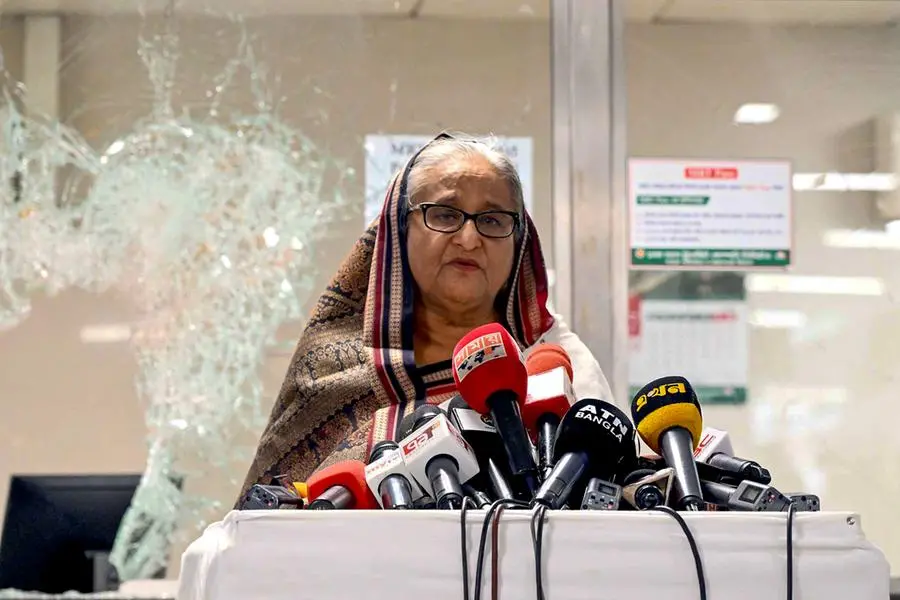PHOTO
The United States "had no involvement" in ousting Bangladeshi prime minister Sheikh Hasina, the White House said Monday, describing the claim as "simply false."
Hasina, 76, quit as prime minister on August 5 after a student-led uprising against her government and fled by helicopter to longtime ally India.
Asked about allegations of US interference, White House Press Secretary Karine Jean-Pierre said: "We have had no involvement at all."
"Any reports or rumors that the United States government was involved in these events is simply false," she told a press briefing.
"This is a choice for and by the Bangladeshi people. We believe that the Bangladeshi people should determine the future of the Bangladeshi government, and that's where we stand."
Hasina's son and former government adviser Sajeeb Wazed Joy had alleged that unidentified foreign forces supported the protests, a claim for which he provided no evidence.
"I believe, at this point, it is from beyond Bangladesh," he said over the weekend.
"Only an intelligence agency would have the capability of smuggling and supplying weapons to protesters," said the US-based Wazed.
In May, Hasina had alleged that a "white-skinned" foreign country was conspiring against her government after it was refused permission to build an airbase.
"Next time, they said, no election will be held in the country," she told a meeting of her then-ruling Awami League-led alliance, the Dhaka Tribune reported.
"We liberated this country through a war. I do not want to gain power by renting or giving certain parts of my country to anyone," she was quoted as saying, claiming "the conspiracy is ongoing" without specifying which country was behind it.
The United States has generally had friendly relations with Bangladesh, with Hasina seen as a partner on a range of issues including shared concerns about Islamist extremism.
But Washington had been critical of what it saw as an undemocratic turn in Bangladesh and had previously restricted visas to Bangladeshis accused of undermining elections.
Nobel laureate Muhammad Yunus has been sworn in as head of an interim government following the ousting of the autocratic Hasina.





















